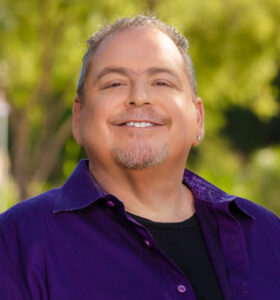When talking about Substance Use Disorders or an addiction, people often assume that the words treatment and recovery have the same meaning. In fact, when a person says they are getting help at a treatment center they will be experiencing something completely different from a person getting help in a recovery program. Let’s take a look at the differences between the terms ‘treatment’ and ‘recovery’.
‘Treatment’ and ‘Treatment Centers’
Treatment is part of the process that involves an individual going to a facility; such as, an inpatient or outpatient center. These treatment centers will help individuals deal with their withdrawal and furthermore begin to address the emotional and physical issues that follow. When these individuals are undergoing treatment, they will have continuous medical care, supervision, and assessment. They may also be involved in psychological counseling and therapy. Some treatment programs teach various recovery tools, while others do not.
A treatment center will offer valuable education and training on how to incorporate a recovery program into the individual’s life, this is critical once they leave the center. Oftentimes, people who are newly sober struggle with recovery, sometimes groups and meetings are simply not enough. In these situations getting treatment at a facility may prove to be a valuable and life saving decision.
There are individuals who believe that treatment centers exist to only make a profit and that everything that needs to be known about addiction and recovery can be found at AA, NA, Smart Recovery or a similar group. While these types of recovery groups are very useful, they cannot offer what a treatment center can. Treatment centers are not there just for profit, they exist because the individuals working there want to help and because they believe that each and every one of their patients/clients can overcome their struggle with addiction.
‘Recovery’
Recovery may include peer support groups, Recovery Coaches, recovery workshops, Alcoholics Anonymous, Smart Recovery, Refuge Recovery, Narcotics Anonymous, Celebrate Recovery or other similar support groups. Some individuals may be able to avoid proper treatment and go to recovery groups only; although this is typically not the case for individuals with a substance use disorder. It comes down to an overall look at the entire person in the form of treatment. This may very well be necessary -and even vital to the person’s own survival.
Treatment is the formal period that usually takes place at an inpatient or at an intensive outpatient facility. It may begin with detoxification, stabilization and with therapeutic and counseling sessions that follow. Dealing with grief and loss, trauma, self image, nutrition, exercise, and more are all covered during treatment.
Once an individual has completed their treatment, they will move onto recovery. They may begin this in their own home or in a transitional center; such as, a sober living home. During recovery, the individual attends various recovery groups and meetings; these will help them to stay on the right path. They also provide ongoing support and act as a useful resource for issues that may occur after treatment. Those who are in recovery will have an understanding of what addiction is and what tools and techniques are available to avoid a possible relapse.
While someone observing a loved one with a Substance Use Disorder may never be able to fully understand the struggle they are going through, they can prepare themselves by learning about treatment, recovery, and the process that is yet to come. Many treatment centers provide family programs. This is where a Recovery Coach can make a very positive impact on the entire family.
What is a Recovery Coach?
A Recovery Coach helps to facilitate the action steps that are necessary to remain clean/sober and live life, as well as support the individual in challenges that come up in everyday activities. For most people getting clean/sober is like being re-born, everything seems new and fresh. When the individual is in the decision making phase of what to do with his/her life, (i.e., going back to school and/or work, changing jobs) the anxiety and fear of the novelty of being in Recovery can be debilitating without the right support in place. Structuring day to day activities can be a lot harder than one might anticipate. Peace of mind, fun and happiness are hard to achieve in Recovery without the necessary life skills.
A Recovery coach helps support the individual in catching up with missed time and building up life skills that were not learned. Individualized goals are set weekly with each person to fit his/her own personal strengths and challenges. An empowerment approach is used to build self-esteem and confidence.
A Recovery coach works with individuals at all stages.. (& all ages); whether the person is in residential treatment, in their own home, a psychiatric facility, currently in sober living, in an outpatient/day-patient program, in the process of transitioning from sober living/treatment to their own home, or has recently relapsed.
A Recovery Coach may also offer monitoring programs, (random drug testing) along with mentoring. Face to face or telehealth meetings will vary depending on where the client is in their sobriety (i.e., zoom, FaceTime, a person’s home, sober living house, or in the Coach’s office etc). In addition, the Recovery coach is on-call by phone. This service alone can help prevent relapses and supports individuals when crises come up.
There is hard data which supports that a longer continuum of care produces better, “long term” outcomes when monitoring and coaching are included in the individuals aftercare plans.
Recovery Coach
(760) 396-8369
David@coachdavidmalow.com
coachdavidmalow.com
43585 Monterey Ave #1
Palm Desert, CA 92260


